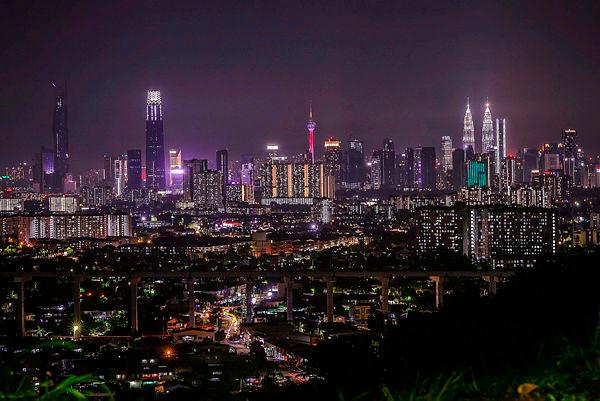PETALING JAYA: The country’s rejuvenated move to develop smart cities offers huge benefits to the people, said APIIT Education Group and Asia Pacific University of Technology and Innovation (APU) chief innovation and enterprise officer Prof Dr Vinesh Thiruchelvam.
He was giving his views on Prime Minister Datuk Seri Anwar Ibrahim’s recent comments that the development of green and smart cities aligns with the Malaysia Madani concept of sustainability.
Vinesh said: “Malaysia is at the forefront of smart city developments. We are building on the foundation laid three decades ago through the development of Cyberjaya.”
While Cyberjaya never really took off despite ambitious plans for a multimedia super corridor, Vinesh said Malaysian cities today have a noticeable infusion of urban lifestyle and infrastructure.
“They include the ever-increasing use of digital and wearable devices and the integration of super apps for smart mobility in transportation.
“There is also the surge in online digital learning for tertiary education, real-time digital health monitoring in hospitals and enhanced cybersecurity for service providers.”
He also said digital governance was optimising government services through efficient app-based solutions.
“The foundation of this influence lies in the strategic use of data, which serves as a foundation for accurate planning.
“Given the considerable costs and time involved in urban infrastructure projects, the integration of predictive analytics using past and trending data becomes imperative.”
He said the approach not only enhances decision-making resilience but is also instrumental in creating effective city development plans, adding that by leveraging the capabilities of data analytics, Malaysia is ensuring the evolution of safe and sustainable places, marking a significant stride towards smart and future-ready cities.
Vinesh also said the government was actively promoting smart cities through key initiatives, including the 2018 Malaysia Smart City Framework.
Developed by the then Ministry of Housing and Local Government (currently Ministry of Local Government Development), this framework addresses urban challenges and guides strategic planning.
It encompasses seven major components – smart economy, smart living, smart environment, smart people, smart government, smart mobility and smart digital infrastructure – which align with the digital governance agenda, as reinforced in the 11th Malaysia Plan.
“Cities like Oslo, Stockholm, Copenhagen, Vancouver and Amsterdam are also noted for their progressive transformation, in line with sustainable development goals and innovative urban planning,” he said.
Universiti Teknologi Mara senior economics lecturer Dr Mohamad Idham Md Razak said the integration of smart city solutions offers the country measurable benefits.
“These advantages, encompassing both direct and indirect impacts, contribute significantly to the overall economic landscape.
“Direct financial gains encompass cost savings in energy use, waste management and traffic control, contributing to increased productivity and fuel savings.”
He said additionally, smart city technology creates new revenue streams through improved service delivery, data monetisation and innovative product development.
Mohamad Idham added that employment opportunities across various industries, such as technology, engineering and data analytics also drive economic growth and upskilling.
He said the indirect financial gains include overall economic growth measured by GDP, employment rates and formation of companies.
“The quality of life improves through enhanced safety, sustainability and access to services, while social cohesion benefits from equal opportunities and civic engagement.”









